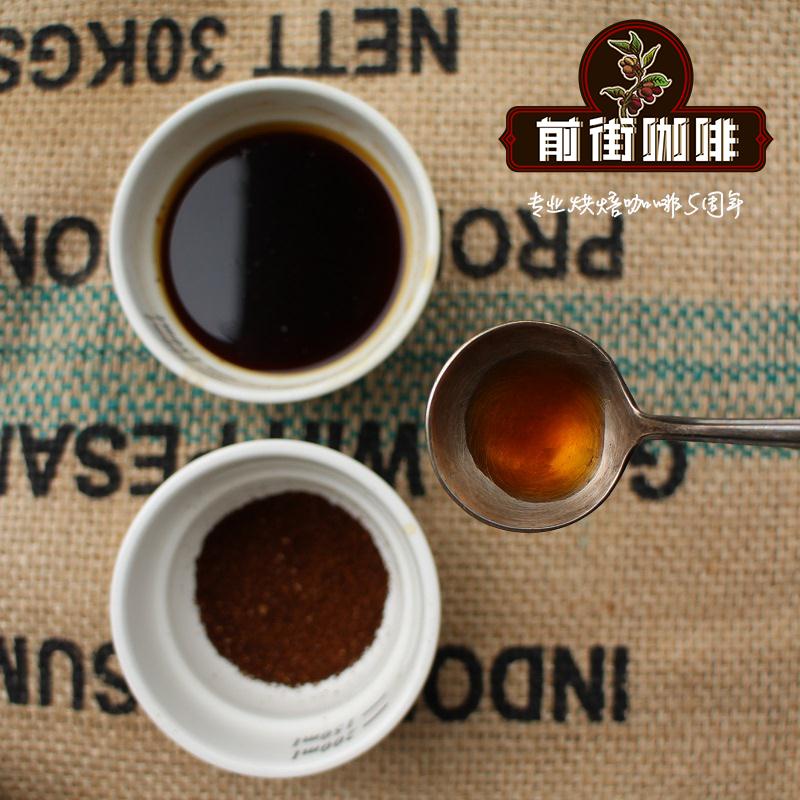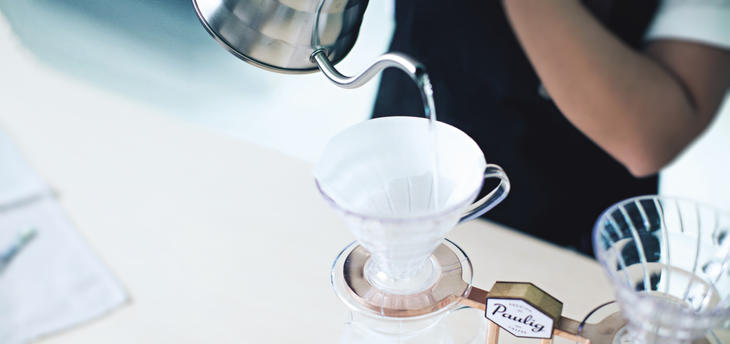Introduction to the characteristics of Arabica coffee beans how much is a cup of Arabica coffee

Professional coffee knowledge exchange more coffee bean information please follow the coffee workshop (Wechat official account cafe_style)
Arabica (Arabica) is the variety name of coffee tree.
Many coffee lovers don't know that Arabica coffee is actually a kind of coffee, not a coffee called Arabica. At the same time, there are many derived varieties of Rabica, such as Tippika bourbon and other derivative varieties. They all belong to Arabica coffee, but they have different names. After all, many Arabica derived varieties have been transplanted to other countries. Due to different geographical location, the flavor and taste will also be different.
Arabica coffee trees grow at an altitude of 900m-2000 m above sea level; they are hardy, and the suitable growth temperature is 15ml / 24 ℃; they need more humidity, and the annual rainfall is not less than 1500 ml. At the same time, they also require higher requirements for cultivation techniques and conditions, but their resistance to dryness, frost, diseases and insect pests is low, and they are easy to be damaged.
Distribution range
Arabica coffee beans are mainly grown in South America, Central America, Africa and Asia. Yunnan, Hainan and Taiwan in China also grow a small amount of Arabica coffee beans.
Arabica coffee
Arabica coffee accounts for about 65% and 80% of the world's coffee beans.
Arabica coffee has a low caffeine content, ranging from 0.9% to 1.2%. It is rich in fat and sugar, so it smells soft, unirritating, fresh and sweet, and sometimes has a refreshing and sour taste. Loved by most coffee lovers.
Arabica coffee smells like grass when it is not roasted. After proper roasting, it shows "fruity" (medium-light roasting) and "caramel sweetness" (deep roasting).
Arabica coffee is derived from many varieties, so Arabica coffee beans will be used in both individual coffee and blended coffee beans, because the most commonly used coffee varieties in the coffee market are Arabica and Robusta coffee.
Many of the individual coffees in the cafe are Arabica varieties, such as Blue Mountain, Kona, Kenya AA and so on, which are all Arabica varieties at different prices. A cup of world-famous coffee like Blue Mountain and Kona is also expensive, because of its low output and balanced flavor, the price of Blue Mountain remains high.
Low-quality Arabica coffee is cheap, but its low-quality flavor is not worth buying, such as Ethiopia will sell good coffee and keep it for domestic consumption.
There are many factors that affect the price of coffee, such as the yield of beans, the height of planting, the evaluation of flavor and taste and so on. The price of Arabica coffee beans on the ICE Futures Exchange has been around 93 cents a pound, but that is much lower than the cost of production for many coffee farmers in Central America, who need $1.20 to $1.50 a pound to break even.
Important Notice :
前街咖啡 FrontStreet Coffee has moved to new addredd:
FrontStreet Coffee Address: 315,Donghua East Road,GuangZhou
Tel:020 38364473
- Prev

Coffee brewing water science-is there really the most suitable water quality for coffee brewing?
Professional coffee knowledge exchange more coffee bean information Please pay attention to the water quality of coffee in the coffee workshop (Wechat official account cafe_style), which directly affects the taste, aroma, consistency and many other health elements of all coffee. The key influencing factor is the mineral composition in the water. Calcium, magnesium, sodium, potassium and other mineral ions in water will affect the thermokinetic extraction of coffee.
- Next

Kenya coffee beans, Kenya coffee beans
Professional coffee knowledge exchange More coffee bean information Please pay attention to coffee workshop (Weixin Official Accounts cafe_style) Kenya coffee has a story... At the end of the nineteenth century, coffee was made by the Fathers of Holy Spirit congregation.
Related
- Beginners will see the "Coffee pull flower" guide!
- What is the difference between ice blog purified milk and ordinary milk coffee?
- Why is the Philippines the largest producer of crops in Liberia?
- For coffee extraction, should the fine powder be retained?
- How does extracted espresso fill pressed powder? How much strength does it take to press the powder?
- How to make jasmine cold extract coffee? Is the jasmine + latte good?
- Will this little toy really make the coffee taste better? How does Lily Drip affect coffee extraction?
- Will the action of slapping the filter cup also affect coffee extraction?
- What's the difference between powder-to-water ratio and powder-to-liquid ratio?
- What is the Ethiopian local species? What does it have to do with Heirloom native species?

